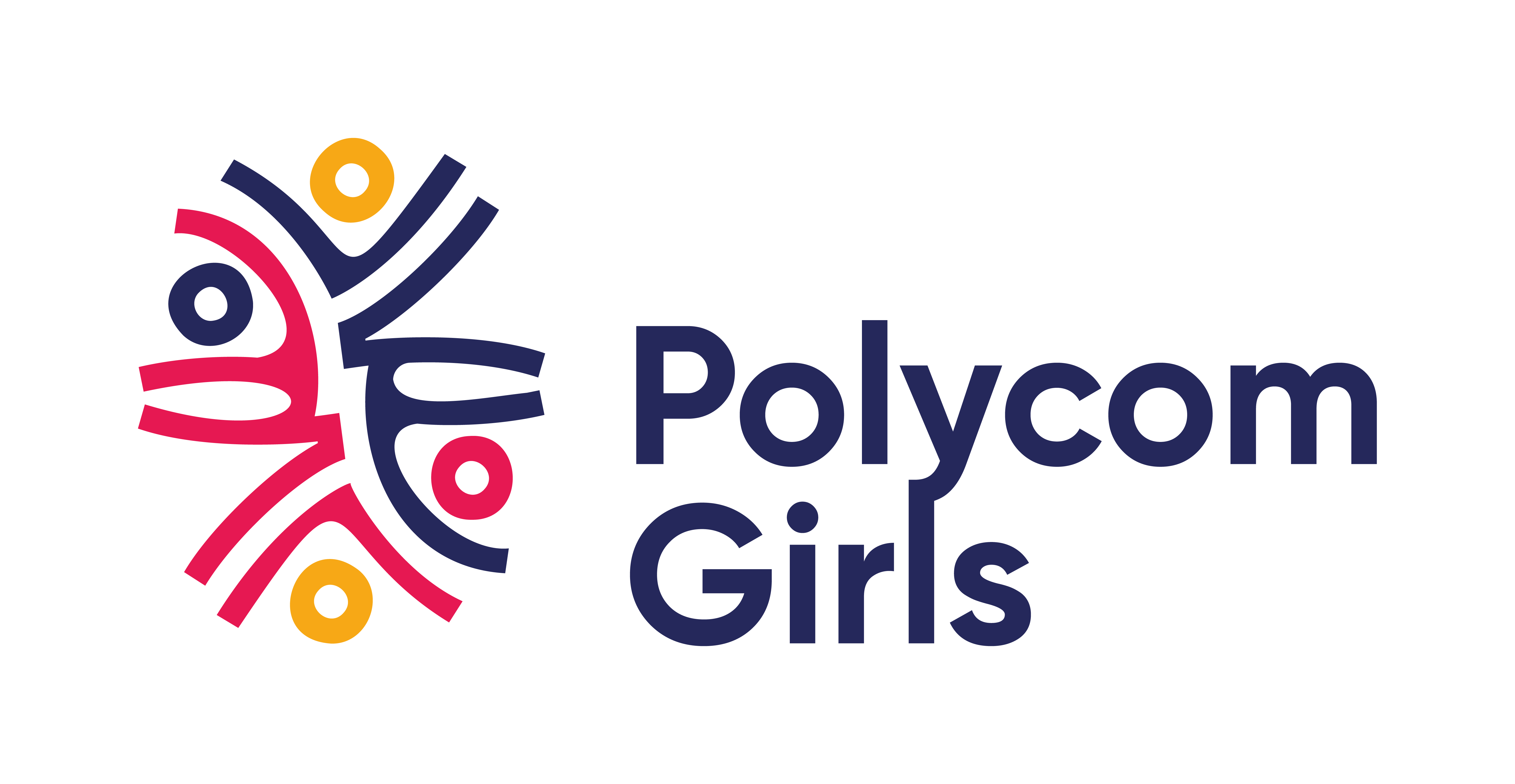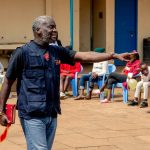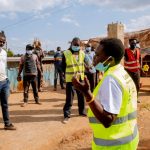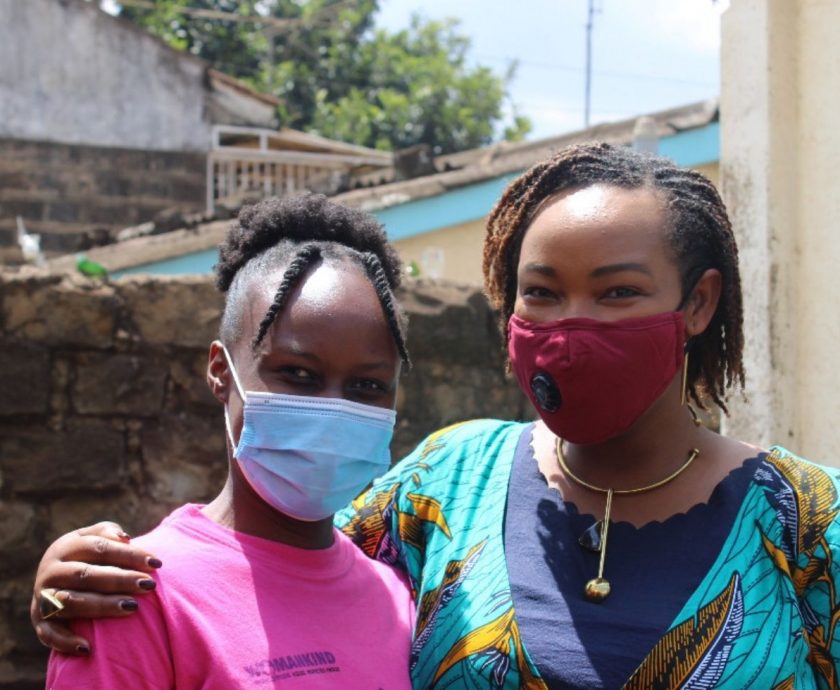The GEF Commitments Training was held on 16th November 2022 at the Ngong Hills Hotel from 9 AM-4 PM. In attendance were state and non-state actors from; The State Department of Gender, National Police Service, Children’s Department, KDCCE, Peace and Reconciliation, Nairobi County, DCC, National Government Administrative Officers- Kibra Sub-county, International Peace Support Training Centre, Polycare, CHVs, Kibera Joy Initiative, Amani Kibera, Imarika Youth, DIESK and Rafiki Program.
The session began with an Introduction to The Generational Equality Forum, an international platform that seeks to mobilize diverse stakeholders to accelerate the implementation of the gender equality commitments made during the fourth world conference on women held in Beijing in, 1995. The main aim for the commitments was to achieve transformative change on gender equality at all levels. With Kenya as a leader in the Action Coalition on Gender Based Violence, H.E. President Uhuru Kenyatta made 12 concrete Commitments at the Generation Equality Forum in Paris in June, 2021. The Commitments aim at increasing the momentum of ending all forms of Gender Based Violence (GBV) and Female Genital Mutilation (FGM) in Kenya by 2026. A five-year road map (2021-2026) was developed through a consultative process with State and Non-State actors in the gender space.
The 12 Commitments were as follows;
GEF Commitment Number 1: Full implementation of Gender Based Violence (GBV) Laws and Policies by adopting a GBV Indicator in the government performance contracting framework by 2022.
GEF Commitment Number 2: Investing USD 23 million for GBV prevention and response by 2022 and increase resource allocation up to USD 50 million by 2026 through a co-financing model. Specifically, the Government of Kenya to commit to sustain allocation of USD 2.79 million to GBV and FGM and incrementally work towards a minimum budget allocation of USD5 million for the subsequent financial years and institute accountability framework for tracking expenditure.
GEF Commitment Number 3: To ratify and implement the ILO Convention 190 on eliminating Gender Based Violence and Harassment in the world of work by 2026 in close partnership with the private sector.
GEF Commitment Number 4: Introduction of a module on GBV in the 2022 Kenya Demographic Health Survey (KDHS) to strengthen the utilization of gender statistics in informing the design, scale-up and evaluation of FGM and GBV programming.
GEF Commitment 5: Developing a GBV management and information system by 2022 to strengthen GBV prevention and response programming.
GEF Commitment 6: Invest Kshs.100 million annually for GBV research and innovation to boost evidence-based programming.
GEF Commitment 7: Integrating GBV services – medical, legal, and psychological support services into the essential minimum package of the Universal Health Coverage (UHC) by 2022.
GEF Commitment Number 8: Scaling up the National Police Service Integrated Response to GBV ‘(Policare)’ and establishing Gender-Based Violence Recovery Centers and shelters in all 47 counties.
GEF Commitment 9: Establishing a GBV survivors fund through a co-financing model in partnership with private sector, civil society, and other stakeholders for economic empowerment of GBV survivors.
GEF Commitment 10: GBV prevention and response in crisis situations such as COVID-19 pandemic response, humanitarian contexts and electoral related GBV.
GEF Commitment Number 11: To strengthen collaboration with non-state actors including girl-led, women’s rights organizations, male champions, and private sector through coordination structures such as the Gender Sector Working Groups at the national and county levels.
GEF Commitment Number 12: Adoption and institutionalization of the multi- sectoral GEF Leadership structure comprising the National Advisory Committee, the National Steering Committee, and the county leadership structure to guide the implementation of Kenya’s GEF Commitments in the GBV Action Coalition up to 2026.
Charity Githinji, a representative from the State Department of Gender, presented on the progress made.
Commitment 1
GBV indicators are in place.
County specific policies on Gender are being developed.
Commitment 2
There is an active FGM board working towards elimination of GBV.
Commitment 8
Establishment of GBV recovery centers and GBV guidelines.
Establishment of a safe house in Kayole. Ground breaking for another safe house in Westlands is to be held on 25th
GBV and FGM working groups have been activated in 47 counties.
Policare center set up in Nairobi. It is however not yet operational due to funding.
Upscale Policare ongoing through British Army Support- A 9 million structure unit to be set up in Nanyuki and Nairobi.
Outcome
The actors drafted priorities that they wished to see added onto the CIDP 3. A memo was drafted from the priorities and was presented during the Kibra Sub-county CIDP 3 public participation. The priorities are as follows;
Increase of funding allocated to the County Government Department of social services and
Gender.
Allocate funds to the GBV technical working group in the County and Sub-counties.
Apportion funds to run the safe houses within the counties so as to will establish
Economic activities within the safe House, thus empowering our women economically as well
imparting technical skills for survival.
Child Protection Units (CPU) for victims to be set up and equipped at police stations.
Provide budget allocation for ambulance services for response to sexual and Gender Based
Violence cases
Conclusion
It was concluded that the Government, CSO’S and other non-state actors should work together towards the achievement of the gender equality commitments.




Pharetra pharetra massa massa ultricies mi. Nascetur ridiculus mus mauris vitae ultricies leo. Scelerisque in dictum non consectetur a erat nam at lectus. Lacus luctus accumsan tortor posuere ac ut consequat.
Nec ultrices dui sapien eget mi. Ac odio tempor orci dapibus ultrices in. In massa tempor nec feugiat velit. Et pharetra pharetra massa massa ultricies mi quis hendrerit.